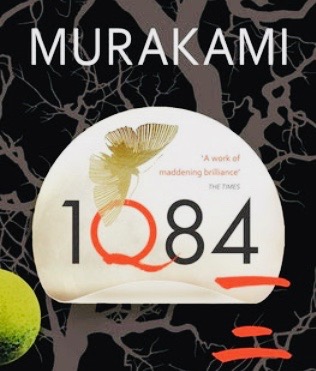GUEST ANALYST LYRIC HUGHES HALE WRITES — Most Russian experts and military strategists I follow doubted Putin would invade Ukraine. I agreed with their rational arguments, but here we are.
I’m reminded of the Haruki Murakami novel 1Q84. The heroine alights from her taxi and gradually discovers that she is living in a world where everything is almost the same, except there are two moons. Since Covid began, I doubt I’m alone in feeling that I have somehow gotten off at the wrong stop, and am living in a hellishly perverse alternative universe.
The two-moon metaphor illuminates how geopolitics has recently evolved. We live between the tidal pulls of two opposing celestial bodies, the East including the Global South, and the West including Japan, which are rapidly developing their own separate ecosystems. The cross-currents are proving treacherous.
Both increasingly disconnected worlds have their own competing views of reality that transcend ideology, the old marker.
The role of the media in driving these opposing narratives has been underestimated, because each is blind to the other, except to the few who navigate both sides. I imagine that the Venn diagram of people who read the Washington Post and People’s Daily is basically two circles that barely touch.
Media has another superpower. Not only does it tell us how things are, it can also forecast the future. A new website The Structure of Economic News uses AI tools to search for key phrases in news reports. Researchers found that mentions of the word “recession” for example, were far more predictive of an actual recession than any other numerical data, including government data releases and market reports. From their paper ‘Business News and Bsiness Cycles: “A central function of the economics profession is measuring the state of the economy and developing models that link these measurements to distributions of future outcomes. The media sector, as a central information intermediary in society, continually transforms perceptions of economic events into a verbal description that we call ‘news’.”
Remarkably, we find that news attention explains 25% of the variation in aggregate stock market fluctuations. Thus, news text partly resolves a central puzzle in financial economics — the notorious inability to explain stock market fluctuations even ex post with anything except other asset prices.
Based on this dynamic, since we know inflation expectations matter, is it much of a leap to believe that media coverage of inflation might increase the chances that inflation will in fact occur?
Media is not just a witness, it is an active participant in key events. This is equally true in democracies and autocracies. What you think about Ukraine, Covid, and the economy depends a lot upon where you live. This is very obvious in Russia and China, where media is state-controlled, but less apparent in the West.
With few exceptions since the Iraq War, US legacy news organizations have taken remarkably similar, institutionally aligned positions on critical policy issues. What they decide to report, and fail to report, matters. However, they are clearly under threat from new entrants and are struggling to adapt. CNN+ failed to attract even 10,000 subscribers.

Lyric Hughes Hale is editor-in-chief of EconVue, a publisher of online economic news and analysis by independent experts. She is producer of the Hale Report, a Chicago-based podcast series on economics with featured guests from around the world. A consultant to multinational corporations, she has contributed to a range of publications including the Yale Books Blog, the Huffington Post, the Financial Times, Los Angeles Times, USA Today, Current History and Institutional Investor. A noted speaker, Ms. Hale has addressed audiences at the World Economic Forum, the Brookings Institution, the Foreign Correspondent’s Club in Tokyo, and the Federal Reserve Bank of San Francisco, as well as Stanford, Northwestern, Harvard and the University of Chicago.

